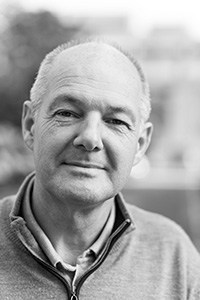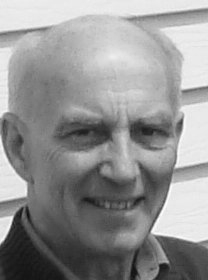Richard Allan OBE
Richard founded MENTOR in 2002 to provide specialist operational and technical support to countries in a humanitarian emergency, with the aim of controlling and preventing diseases such as malaria, neglected tropical diseases and other vector-borne and diarrhoeal diseases.
He holds responsibility for the overarching strategy and direction of the organisation, representing MENTOR at the highest levels in the humanitarian sector. He leads on our operational research programme providing guidance and support for the development of new and innovative research interventions with particular focus on testing new vector control tools. He also directs our emergency team activities, making sure we respond to new and emerging humanitarian emergencies rapidly and effectively.
Richard has been working closely with WASH leads in WHO and UNICEF to join disease control with water, sanitation and infrastructure to progress a holistic solution to the growing threats of climate change, insecticide resistance, conflict-affected populations and the emergence of new, invasive vectors. He is also involved in global policy working groups helping to shape policies on WASH and vector-control in emergencies.
Darvin Scott Smith
Scott grew up in Boulder Colorado and attended medical school at the University of Colorado. He went to public health school at Harvard University where an interest in Tropical Public Health was further developed, leading to a yearlong study as a Fulbright Scholar in Cali Colombia, where he studied improved diagnostic technologies to understand the epidemiology of leishmaniasis, and onchocerciasis (River Blindness), a leading infectious cause of blindness worldwide. He completed residency then a Fellowship at Stanford University in Medicine then Infectious Disease & Geographic Medicine.
Scott currently serves with the San Mateo County California Mosquito and Vector Control Board. He was presented the Bloomfield award in recognition of excellence in teaching of clinical medicine at Stanford School of Medicine. Since 1999, he has organized local then regional then Kaiser Nationally sponsored Travel Medicine Conferences to prepare travelers for safe international trips. In addition to his academic postings, Scott serves locally on the San Mateo County Mosquito Abatement District Board as trustee and board member. He has worked in the clinical sector for MENTOR-Initiative training workshops about Malaria and Vector-borne diseases as well as Emergency Responses, in Indonesia, Uganda, Kenya, Tanzania, Haiti, and Myanmar.
He has recently appeared on The Doctors Show (CBS), Animal Planet, Discovery Channel and National Geographic (and even the Tyra Bank’s Show in New York!) about a number of unusual parasitic diseases in humans including leishmaniasis, tapeworm, leprosy and hookworm.
Gareth Williams
Gareth brings a wealth of experience to the MENTOR board, building on his past experience with the MENTOR as he helped during their transition to a new financial system.
Currently working as an independent management consultant providing advisory & programme management support in organisational change, service transformation projects & financial management, his expertise is cross-sectoral, and built from over 25 years in the private and international development sectors. Whilst posted as Consulting Director for Capita Consulting, Tribal Consulting, and HELM Corporation in account management, business development and international development programmes, Gareth gained experience with clients both in the United Kingdom and Ireland, and abroad, reach across Central and Eastern Europe, and into sub-Saharan Africa and South Asia.
His efforts in the sector have led to working with development partners including DFID, EU, World Bank, and Asia Development Bank, Gareth gained experience in the design, delivery, and assessment of public financial management, food security, and civil service reform projects.
Linda Mobula, MD, MPH
Linda Mobula brings a wealth of relevant and highly reputable expertise to the MENTOR board. She has held various senior positions as a Health Specialist, Humanitarian advisor and Chief Medical Officer, and has been an ambassador for USAID and OFDA, at UN cluster meetings, and has worked with a range of organisations from the World Bank to Catholic Relief Services, in locations from Haiti to Greece, Liberia to the Philippines and more. From within her wide background of relevant expertise, Linda has specialised in Ebola response and how to improve public health systems for rapid detection and treatment outcomes. This experience positions Linda perfectly for growing MENTOR’s ability to deliver key emergency disease control programmes to a high standard.
Paul Jobson
Beginning his career in strategic consulting with W S Atkins, Paul then spent approximately two decades in senior management in the automotive sector in UK and North America, with Massey Ferguson and Perkins Engines. This was followed by almost a decade in private equity in UK becoming a partner with ECi Ventures focussed on MBO/MBI’s (Management buyins and buyouts). This was followed by 4 years as Managing Director of CDC (Commonwealth Development Corporation) investing in the developing world.
Paul has chaired the boards of a number of private companies and joined the Advisory Board of the Mentor-Initiative in 2003 and its main Board in 2011, (where since 2017 he has held the chair.)





